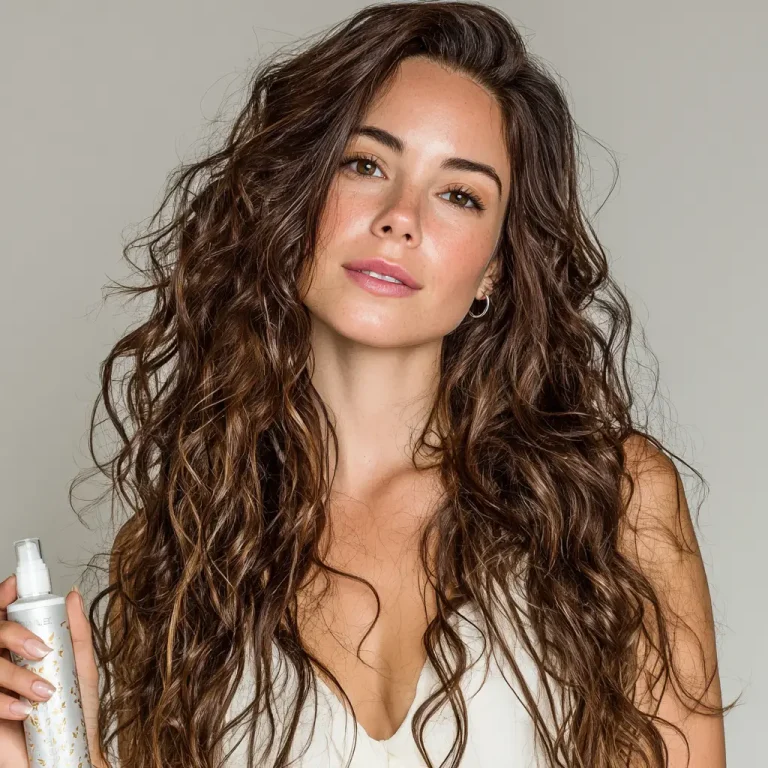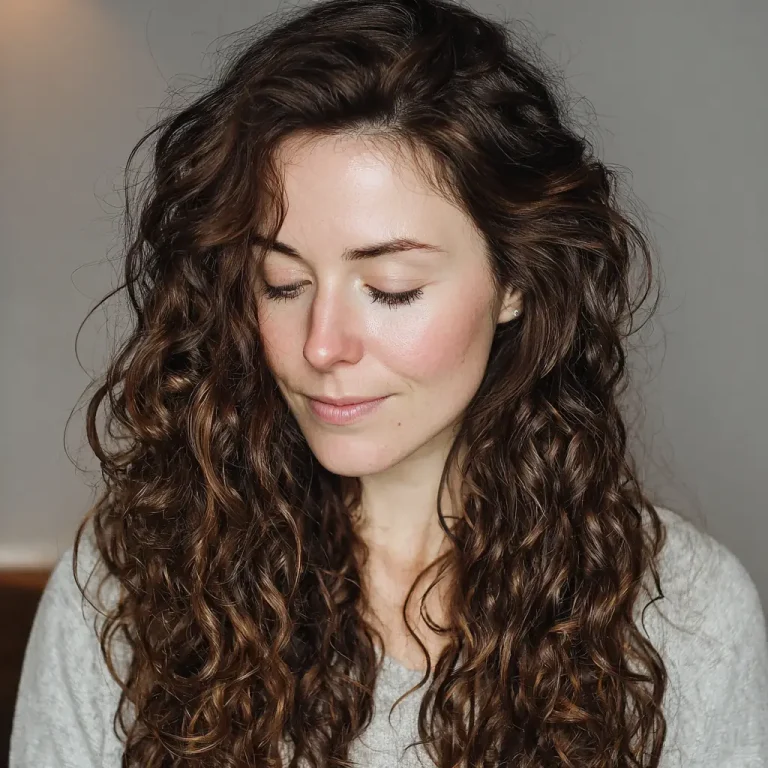13 Skin Care Routine
Starting a skincare routine at the age of 13 is a great way to build lifelong habits. At this stage, the body is going through hormonal changes that often show up on the skin. Many teens may notice oiliness, blackheads, or occasional breakouts for the first time. Others may experience dryness or irritation, depending on their skin type. A well-balanced skincare routine can help manage these changes without being overwhelming. It’s important to understand that teenage skin is still delicate and doesn’t need the heavy products marketed to adults. Instead, keeping things simple, consistent, and gentle can make all the difference in achieving healthy, glowing skin.
1.Start with a Gentle Cleanser
Cleansing is the foundation of every skincare routine. A gentle cleanser removes dirt, oil, sweat, and any leftover sunscreen or makeup. For young skin, it’s best to avoid harsh foaming cleansers or products with strong fragrances, as these can strip away natural oils and cause irritation. A cream or gel-based cleanser is usually ideal. Washing the face in the morning helps remove excess oil that builds up overnight, while cleansing in the evening clears away dirt from school, sports, or outdoor activities. Over-washing should be avoided because it can dry out the skin and trigger even more oil production.
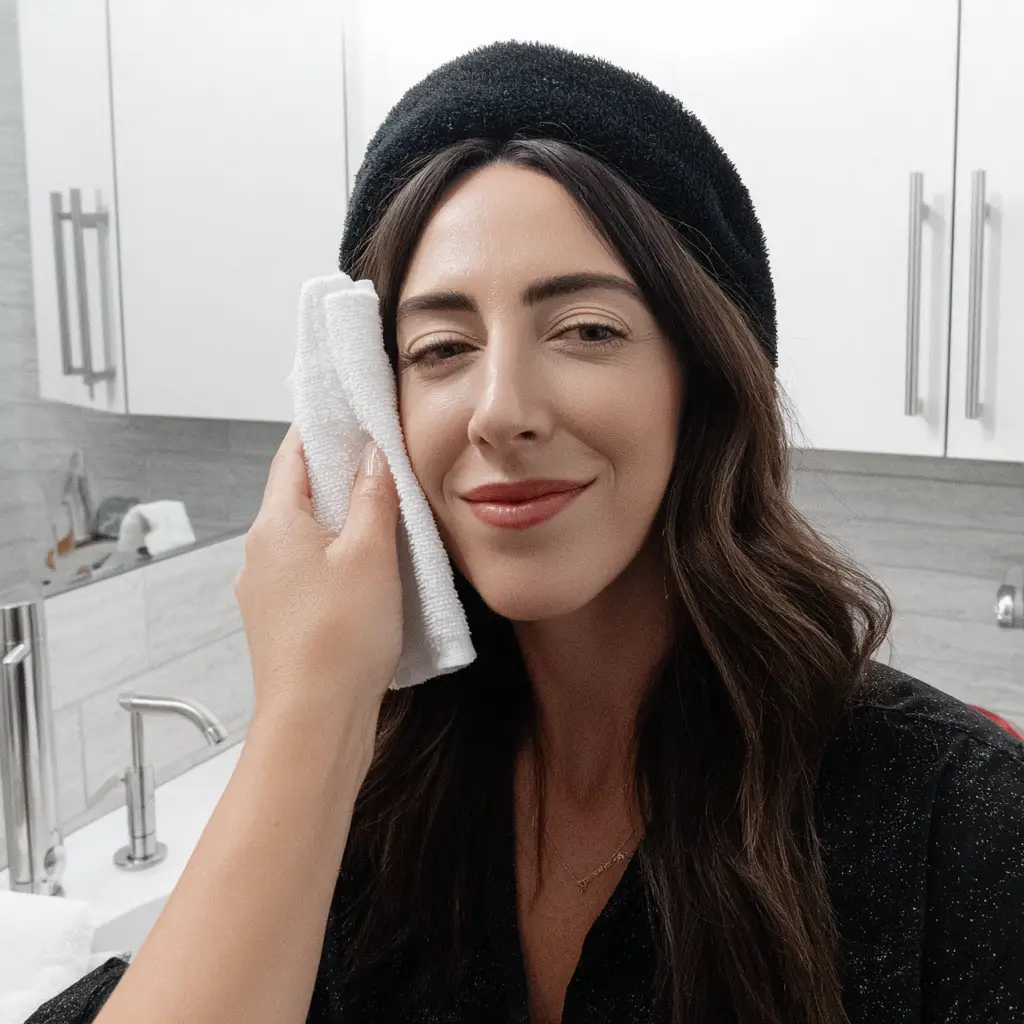
2.Hydration with a Lightweight Moisturizer
Moisturizing may seem unnecessary for oily or acne-prone skin, but it’s actually one of the most important steps in a skincare routine. When the skin is properly hydrated, it feels softer, looks healthier, and is less likely to overproduce oil. For teens, a lightweight, oil-free, non-comedogenic moisturizer works best since it won’t clog pores. Those with drier skin may benefit from a slightly richer cream, but it’s important to choose one designed for sensitive or youthful skin. Applying moisturizer twice daily—right after cleansing—locks in hydration and creates a protective barrier against environmental stressors.
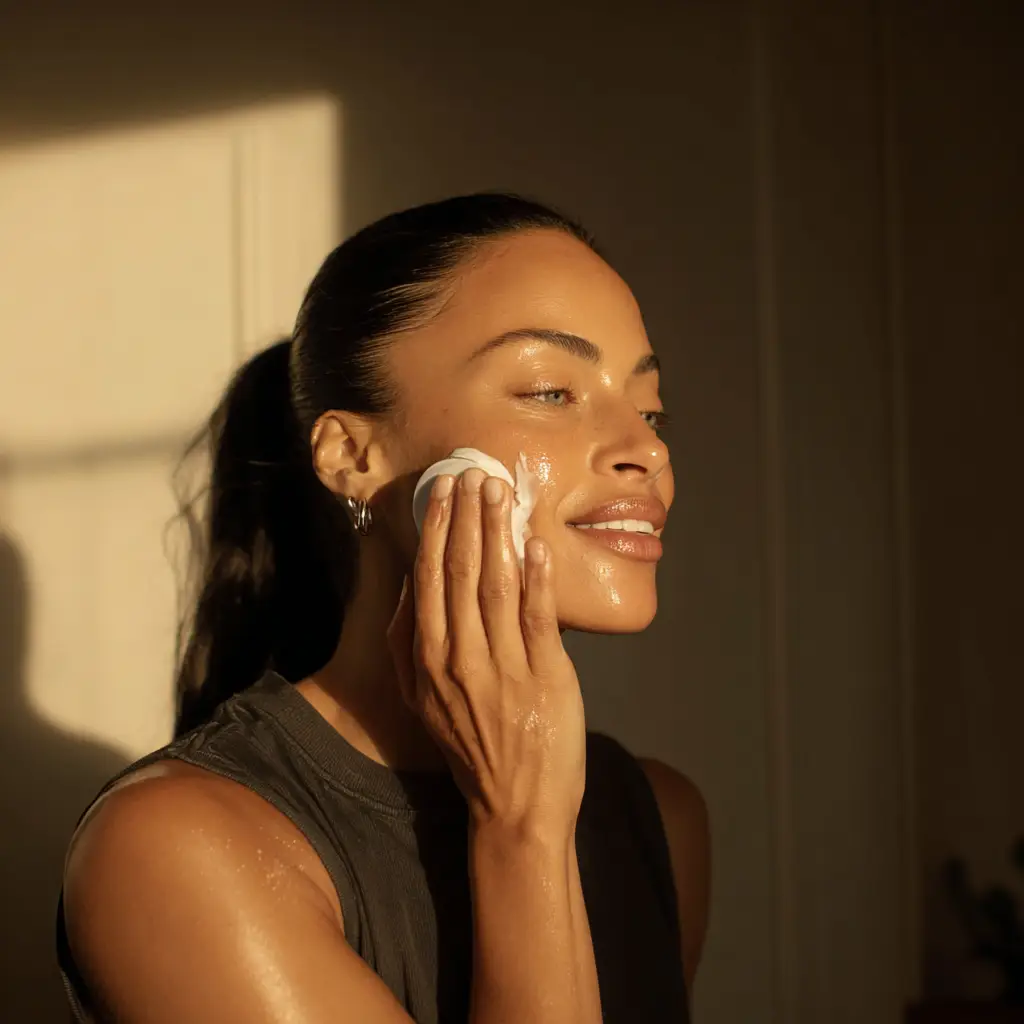
3.The Importance of Sunscreen
Sunscreen is often overlooked by teens, but it’s one of the most protective steps in skincare. Sun damage accumulates over time and can lead to premature aging, dark spots, and even skin cancer later in life. Using a broad-spectrum sunscreen with at least SPF 30 every morning is crucial, even on cloudy days. For young skin, lightweight, non-greasy formulas or mineral sunscreens are easier to tolerate. Sunscreen should be reapplied every two hours when outdoors, especially during sports or swimming. Getting into this habit early helps keep skin youthful and healthy for years to come.
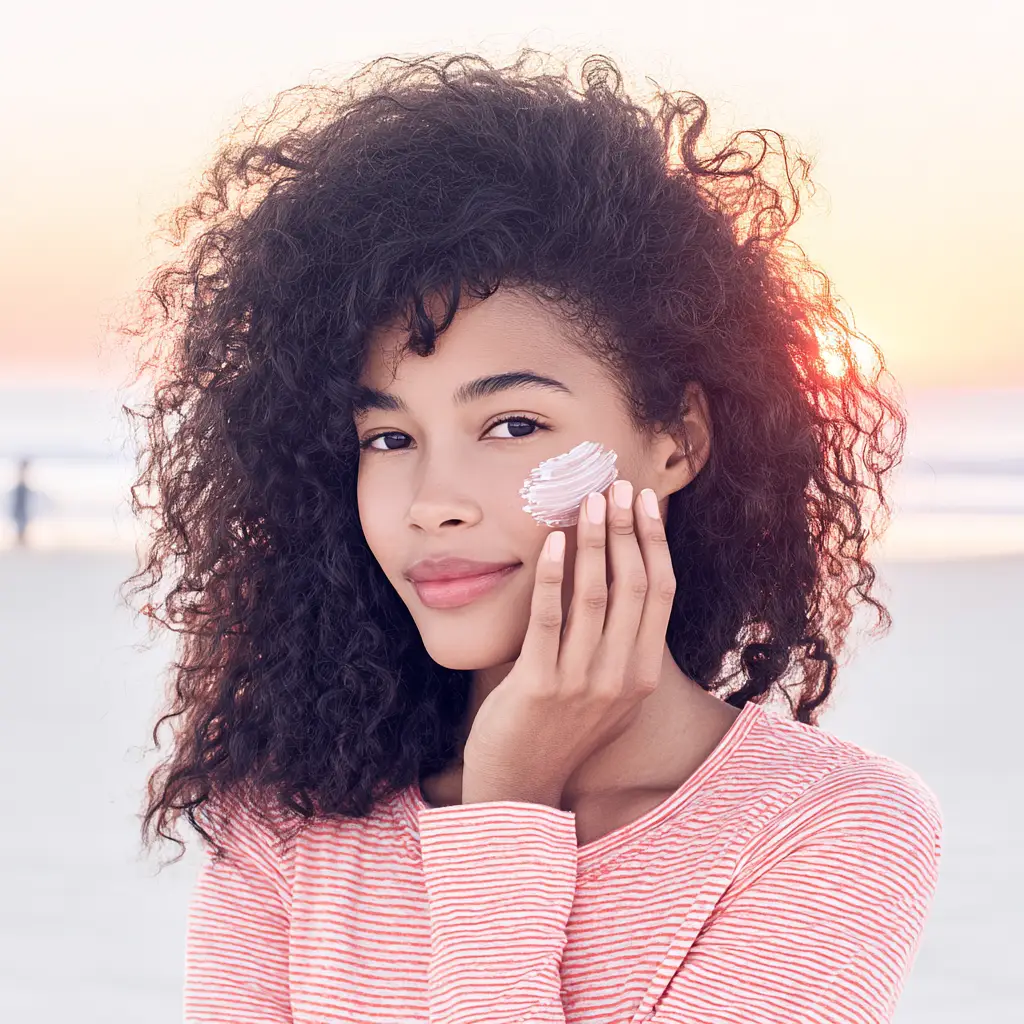
4.Gentle Exfoliation Once a Week
Exfoliation is the process of removing dead skin cells that sit on the surface and cause dullness or clogged pores. For young teens, over-exfoliating can be damaging, so once a week is plenty. Instead of harsh scrubs with rough beads, a mild exfoliant with fruit enzymes, lactic acid, or a low concentration of salicylic acid works best. These ingredients clear pores gently and brighten the skin without irritation. Exfoliating at night is recommended so the skin can rest and renew while you sleep. This step also helps other skincare products absorb better.
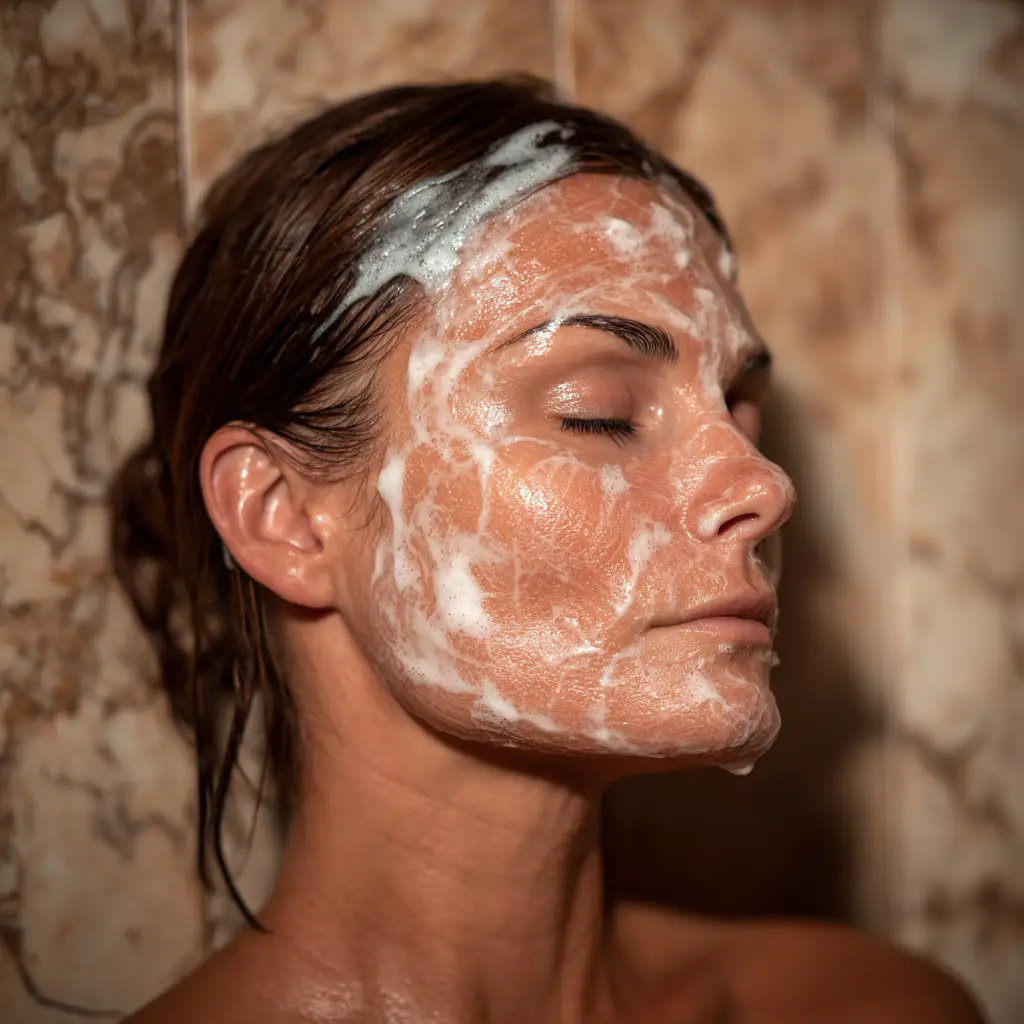
5.Spot Treatment for Breakouts
Breakouts are a normal part of teenage years, but they can still feel frustrating. Instead of popping pimples—which can leave scars—it’s better to use a spot treatment. Ingredients like benzoyl peroxide target acne-causing bacteria, while salicylic acid unclogs pores. Spot treatments should only be applied directly to the pimple, not all over the face, to avoid dryness. A little goes a long way, and consistency is key. Patience is also important—pimples need a few days to heal, and quick fixes usually do more harm than good.
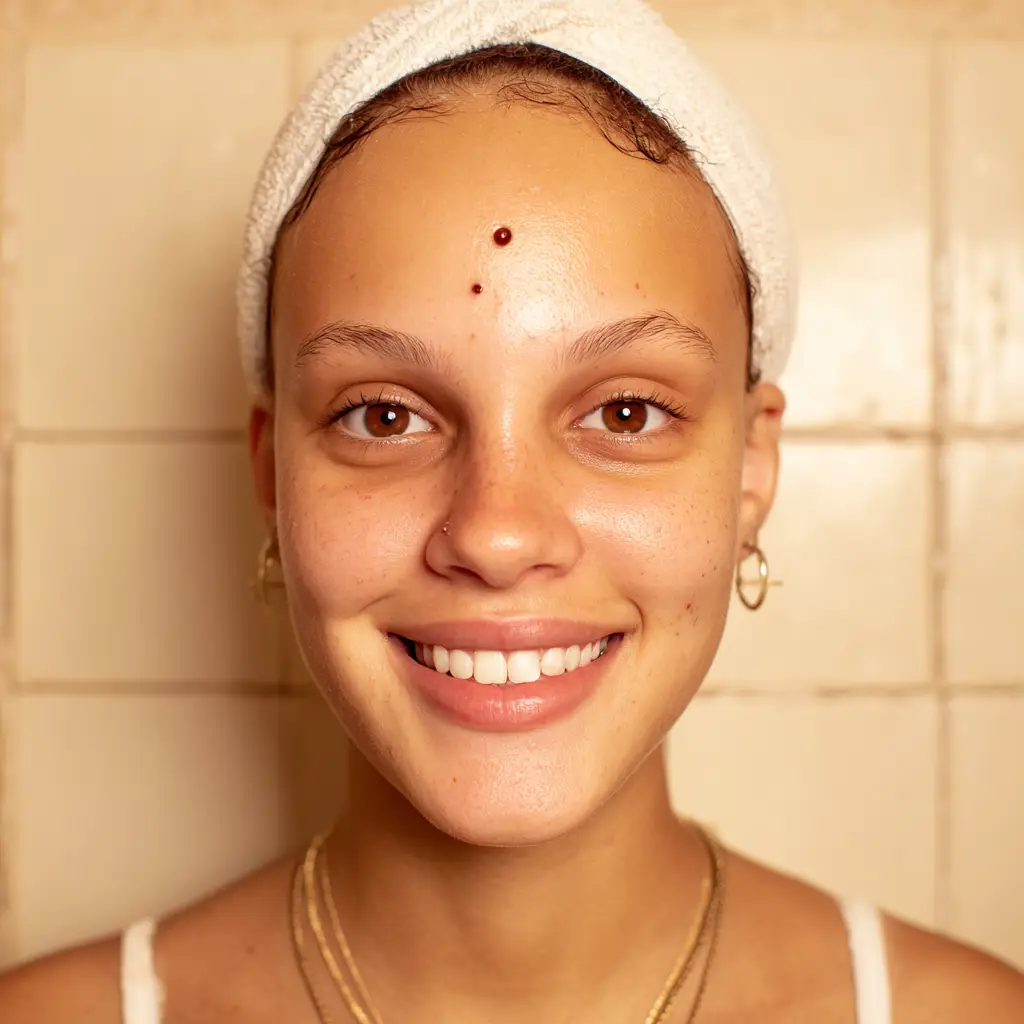
6.Don’t Forget Lip Care
Lips are one of the most sensitive areas of the face, and they can easily become dry or chapped, especially in cold or windy weather. Using a simple lip balm with hydrating ingredients like shea butter, coconut oil, or beeswax keeps them soft and healthy. Choosing a balm with SPF is even better, since lips are just as vulnerable to sun damage as the rest of the skin. Applying lip balm in the morning, before bed, and throughout the day whenever lips feel dry is a simple way to avoid discomfort and keep your smile looking fresh.
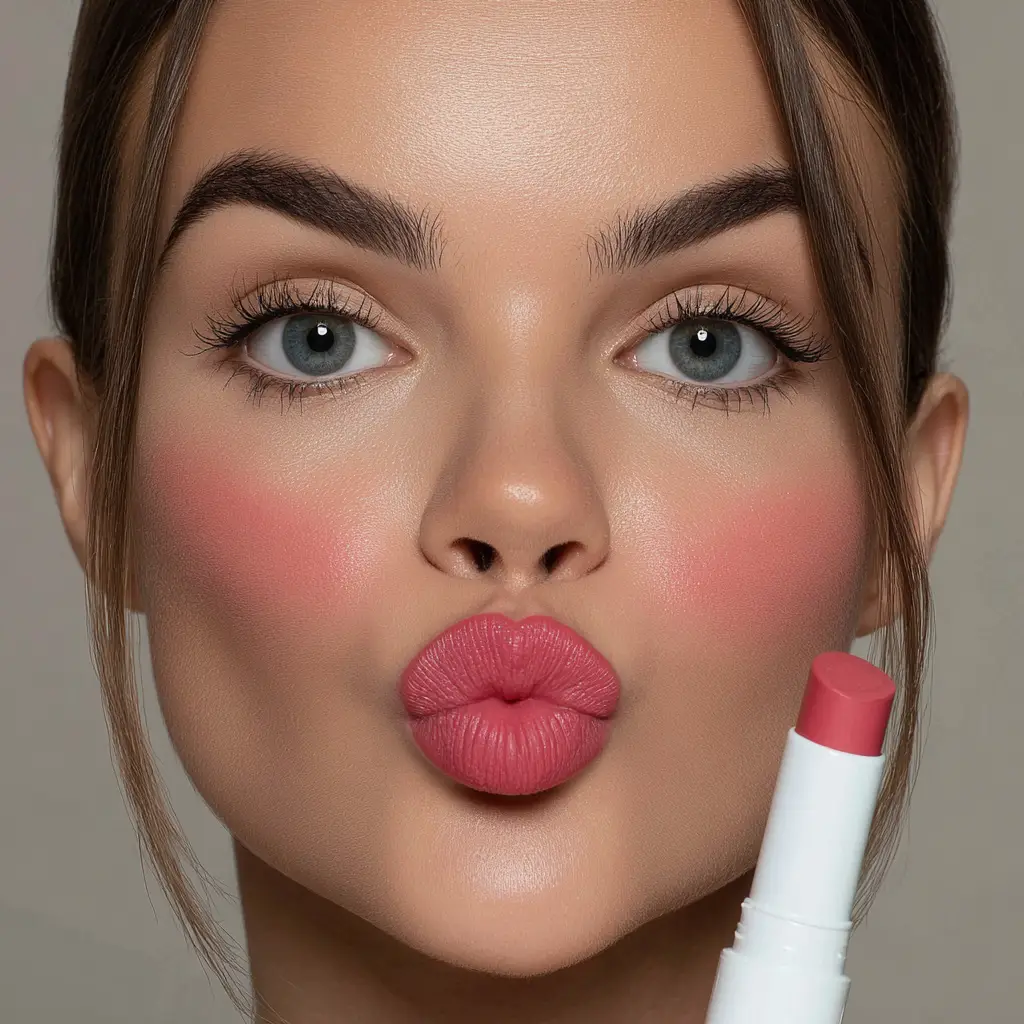
7.Keep Hands Clean Before Touching Your Face
It’s easy to touch your face without realizing it—leaning on your hand during class, adjusting hair, or picking at pimples. However, hands carry dirt, bacteria, and oils that can worsen breakouts. Making a habit of washing your hands before applying skincare products helps prevent transferring germs to your skin. Another helpful tip is to regularly clean items that touch your face, like your phone, pillowcases, and glasses. These small habits can make a noticeable difference in keeping the skin clear and balanced.
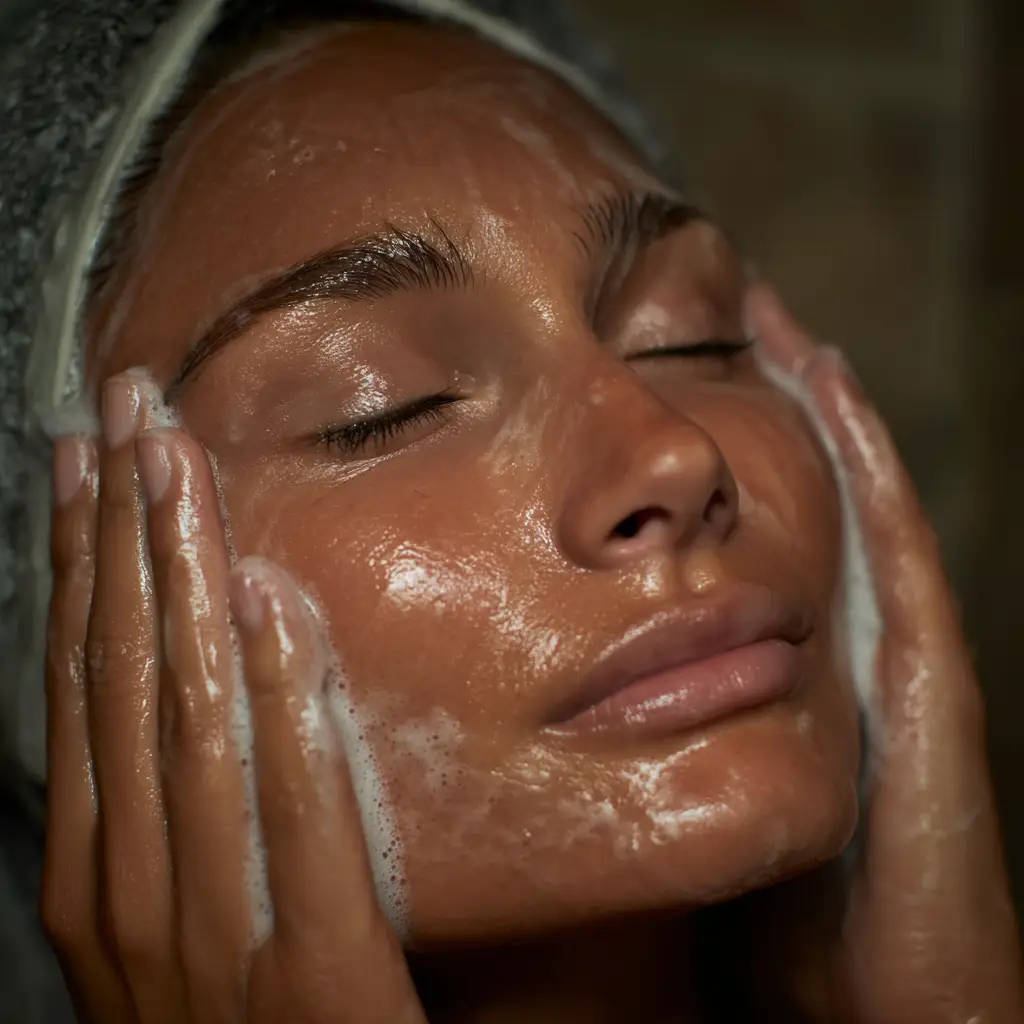
8.Nighttime Routine Matters Too
A nighttime routine allows your skin to repair itself while you sleep. The most important steps before bed are cleansing to remove dirt and sunscreen, followed by applying a moisturizer. At night, skin is more active in renewing itself, so keeping it hydrated helps it recover from the day. Teens don’t need fancy serums, but if breakouts are a concern, this is the best time to apply spot treatments. Sticking to a consistent bedtime routine also helps reduce stress, which is another factor that can affect skin health.
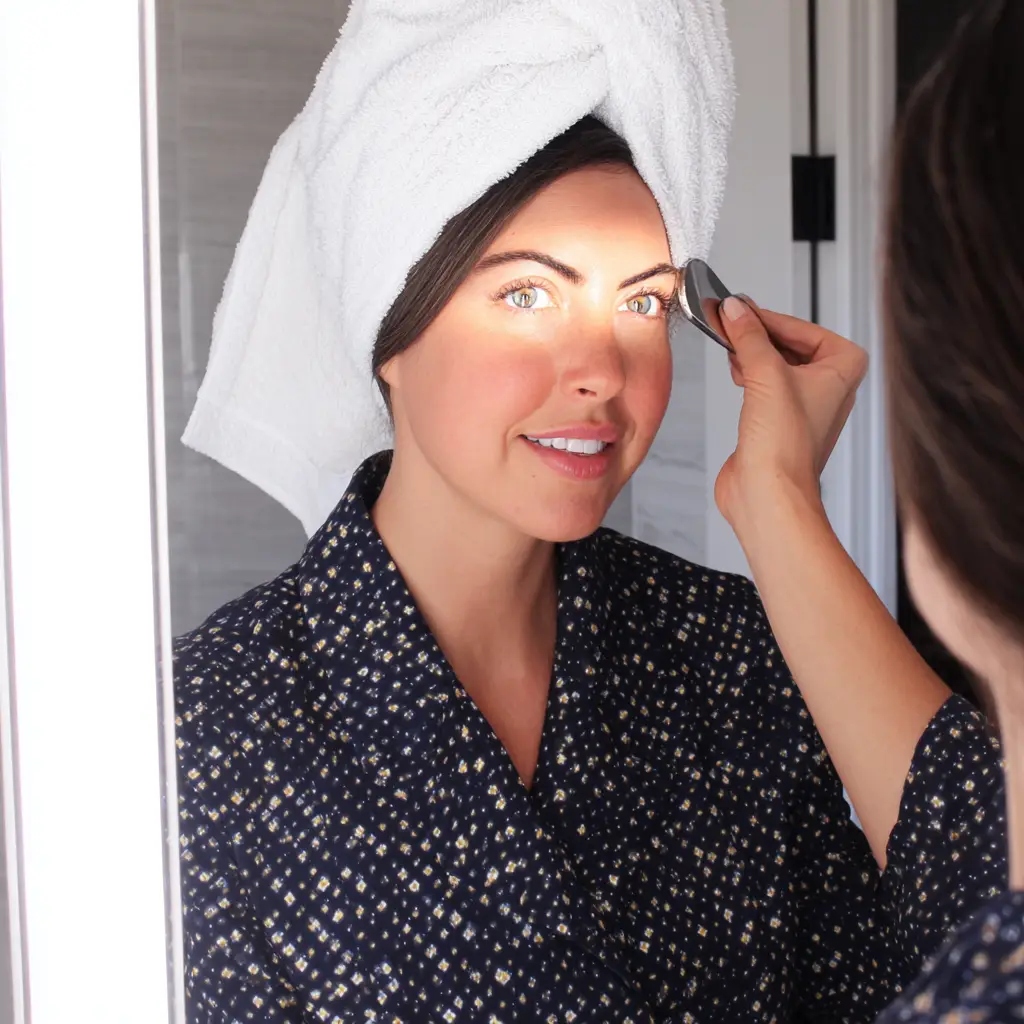
9.Stay Hydrated from the Inside Out
Skincare is not only about what you put on your skin—it’s also about what you put in your body. Drinking enough water throughout the day helps flush out toxins and keeps skin cells plump and hydrated. A diet rich in fruits, vegetables, and foods high in omega-3 fatty acids supports skin health naturally. On the other hand, too much sugary or processed food can sometimes worsen acne. Maintaining a balanced lifestyle with good sleep, exercise, and hydration is just as important as applying products.
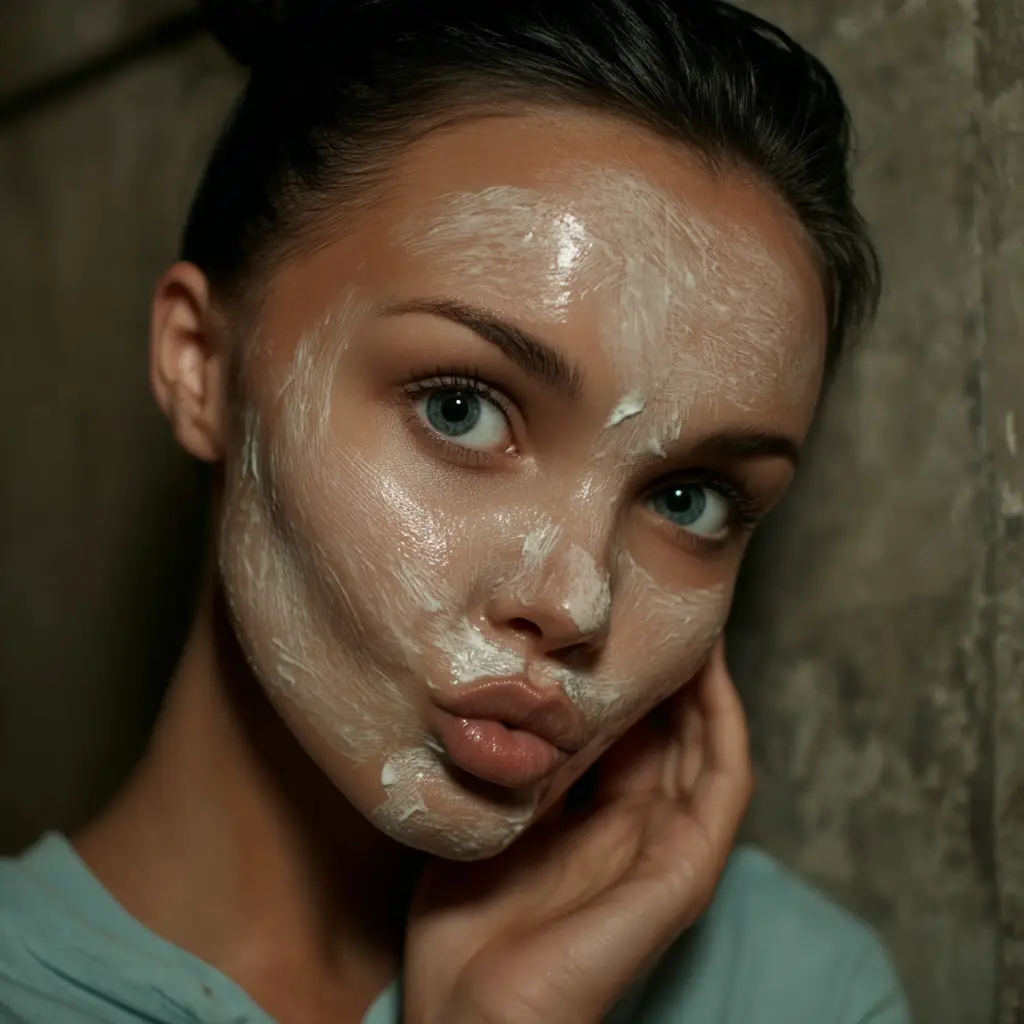
10.Avoid Overloading Products
It’s easy to feel tempted by all the products available, especially with social media trends, but more isn’t always better. Teenage skin doesn’t need complicated routines with 10 or more products. Overloading with serums, toners, and treatments can irritate the skin and cause breakouts. Sticking to the basics—cleanser, moisturizer, and sunscreen—is usually enough. Other products like exfoliants or spot treatments should only be added when needed. A simple, consistent routine always outperforms a complicated one.
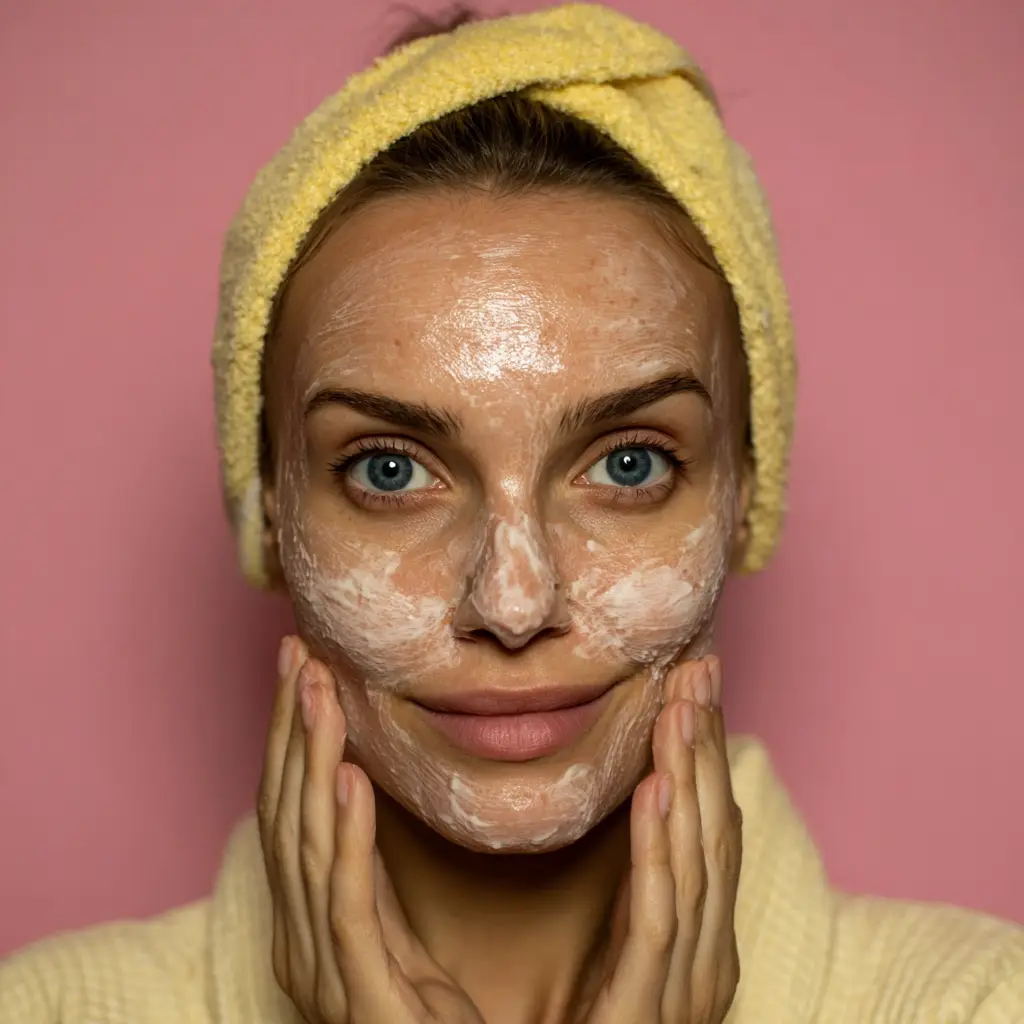
11.Consistency Over Perfection
The most effective skincare routine is the one you stick to daily. It’s okay to forget a step once in a while, but making skincare a regular habit leads to real results over time. Skin health is a journey, not a race, and everyone’s skin reacts differently. Comparing your skin to others isn’t helpful—what matters is finding what works for you and following it consistently. Even if results take time, small efforts each day add up to healthier skin in the long run.
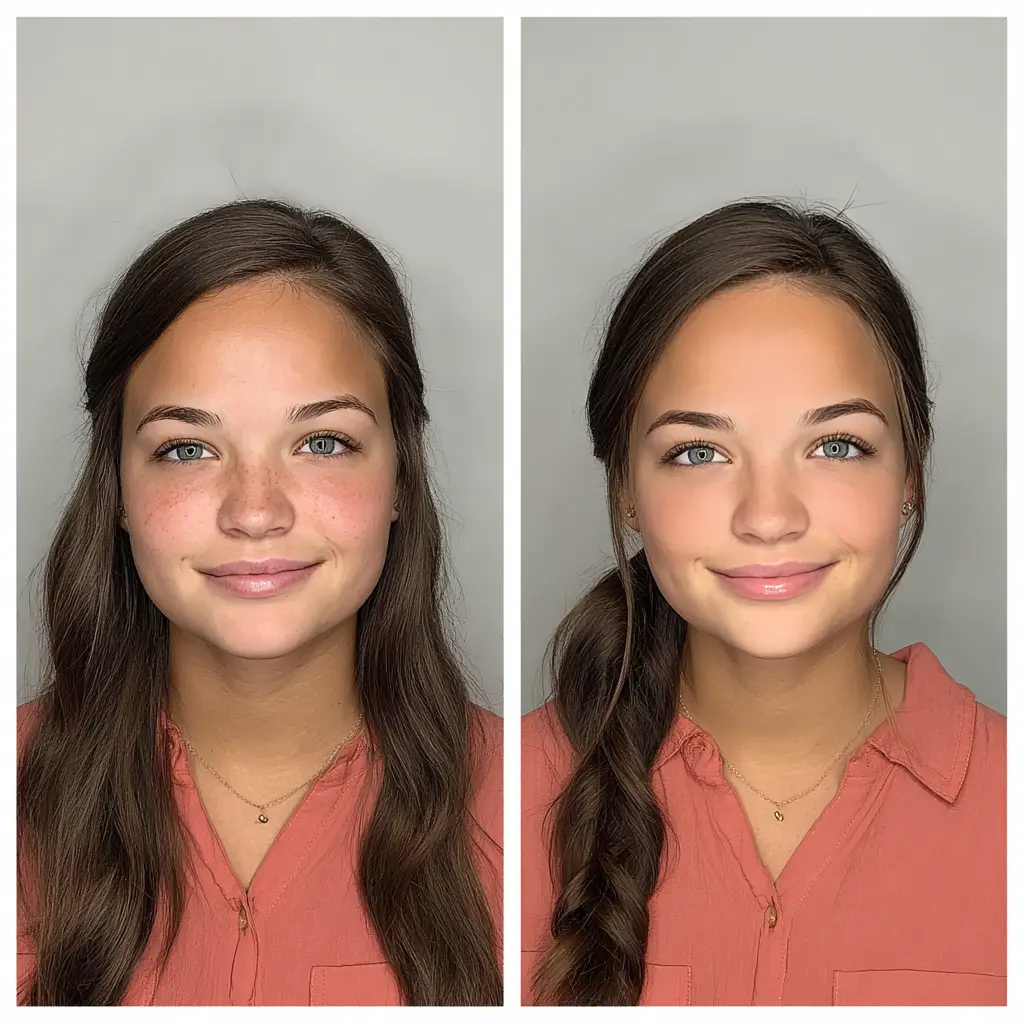
12.Seek Help for Persistent Skin Concerns
If you notice severe acne, redness, dryness, or anything unusual, don’t be afraid to ask for help. A dermatologist can provide guidance and prescribe treatments that are safe for young skin. Trying random products without knowing your skin type can sometimes make the problem worse. Professional advice ensures that your skin stays healthy and prevents long-term damage. Taking action early also helps with self-confidence, since clear, healthy skin makes you feel more comfortable.
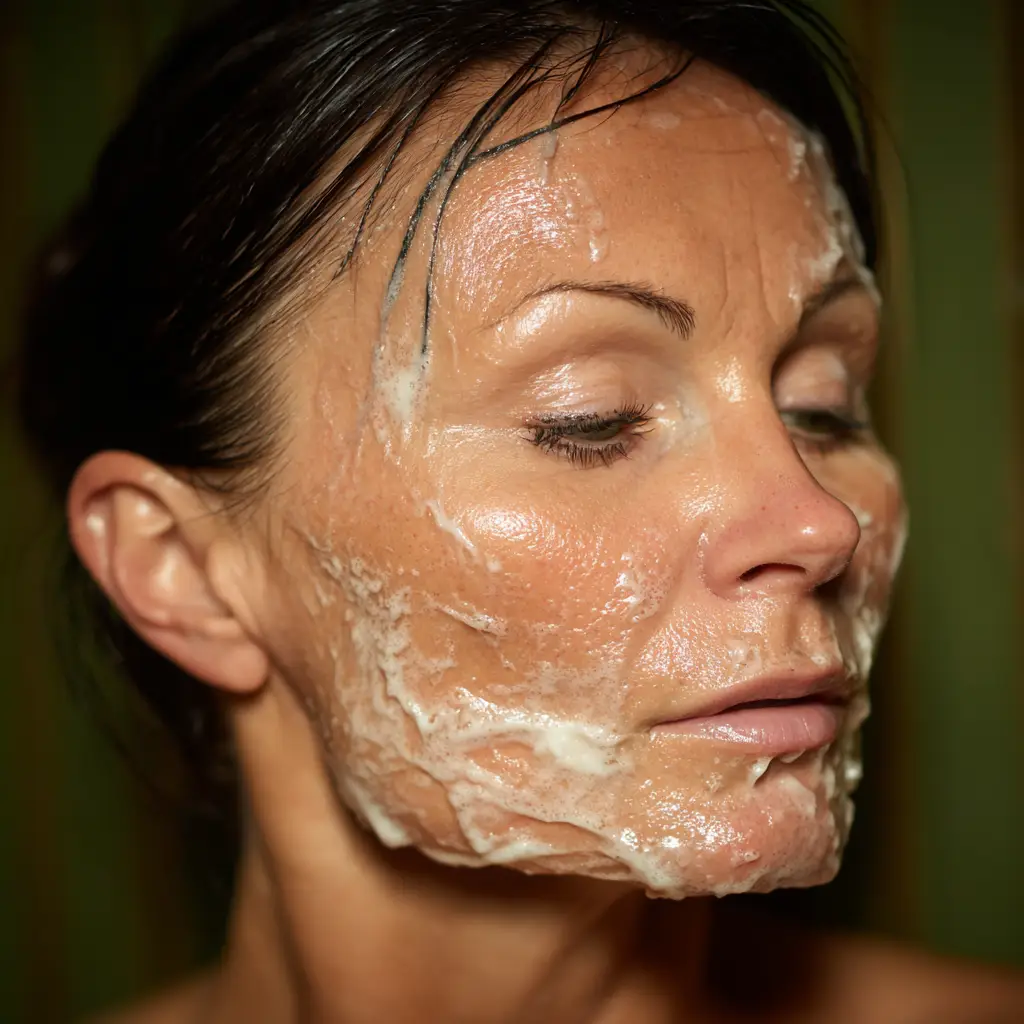
13.Embrace Self-Confidence
At the end of the day, skincare isn’t just about clear skin—it’s about how you feel. Acne and breakouts are completely normal, especially during the teenage years, and they don’t define your worth. Taking care of your skin should feel like an act of self-love, not pressure to look perfect. Confidence comes from being kind to yourself and remembering that healthy skin is beautiful skin. By building a routine now, you’re not just taking care of your skin—you’re also taking care of your future self.
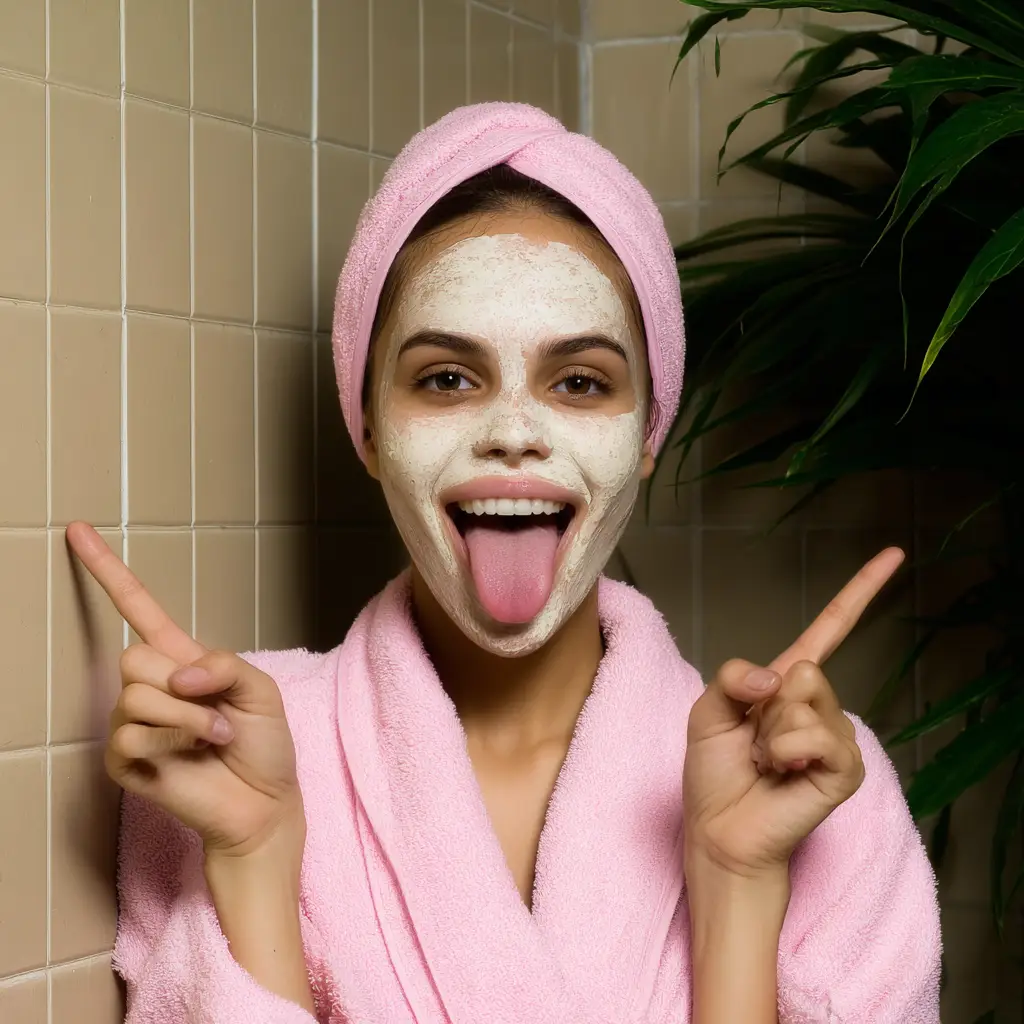
FAQs
What age should I start a skincare routine?
You can start around 12–13 years old with simple steps like cleansing, moisturizing, and sun protection.
Do I need expensive products for good skin?
No, affordable drugstore products are often just as effective as luxury brands. The key is consistency.
How often should I exfoliate at 13?
Once a week is enough to keep pores clear without irritating young skin.
Is makeup safe for 13-year-olds?
Yes, but it should be used in moderation and always removed before bed to prevent clogged pores.
Can diet affect my skin?
Yes, foods high in sugar and oil can sometimes worsen acne, while a balanced diet supports clear, glowing skin.
Conclusion
A 13+ skincare routine doesn’t need to be complicated—it just needs to be consistent and gentle. By focusing on cleansing, moisturizing, sun protection, and developing healthy habits, you can support your skin during these important years. Avoid harsh products, don’t overload your skin, and remember that confidence is just as important as clear skin. Building these habits now ensures your skin will thank you later in life.


